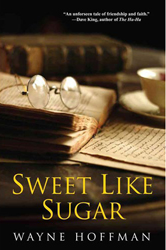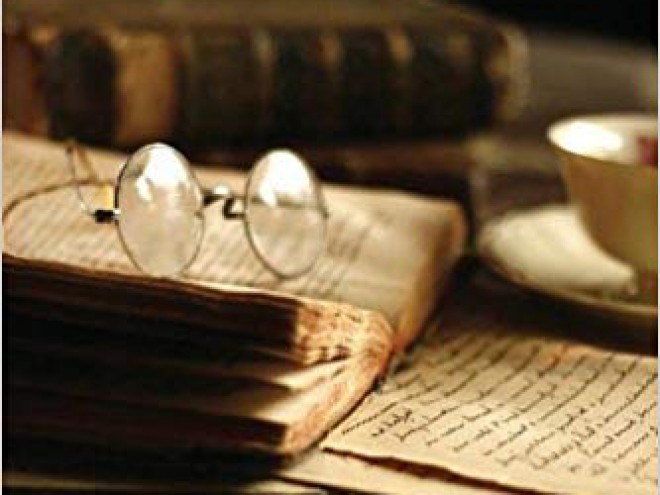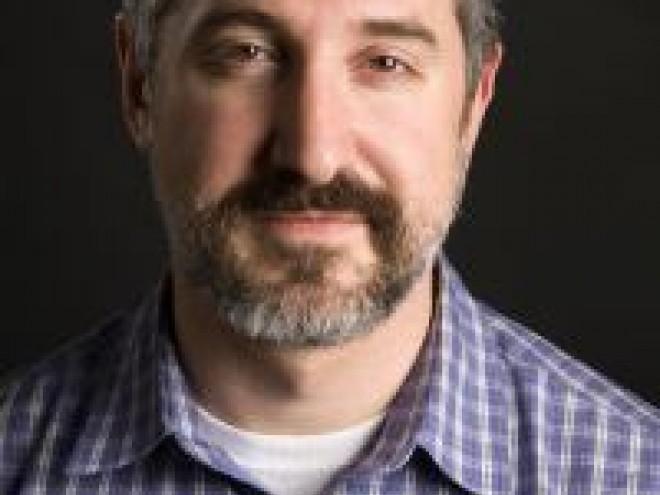Wayne Hoffman‘s most recent book, Sweet Like Sugar, is now available. Hoffman is the deputy editor of Nextbook Press and will be blogging for the Jewish Book Council and MyJewishLearning’s Visiting Scribe.
 My mother has always been a great storyteller: In recounting any anecdote, she knows exactly which details to leave out and which ones to exaggerate for maximum impact. She has a keen sense of the ridiculous. Plus she’s got impeccable timing. Meet her for the first time or the hundredth time, and she’ll launch into a story that’ll have you laughing in thirty seconds.
My mother has always been a great storyteller: In recounting any anecdote, she knows exactly which details to leave out and which ones to exaggerate for maximum impact. She has a keen sense of the ridiculous. Plus she’s got impeccable timing. Meet her for the first time or the hundredth time, and she’ll launch into a story that’ll have you laughing in thirty seconds.
Okay, maybe that makes her more of a stand-up comedian than a storyteller. But we’re Jews. It’s a fine line.
With her excellent sense of what makes a story compelling, she’s always on the lookout for her son-the-writer. “Here’s something you could write about,” she’ll tell me as she launches into a new bit, almost begging me to steal her material. Or, after I tell her something she finds particularly amusing, she’ll advise me: “You should write a book about that!”
If I wrote a book about everything my mother thinks is book-worthy, I’d have a very busy literary agent. But the truth is, the things I find fascinating or hilarious for a few seconds would rarely retain my interest for an entire book, while the events that inspire me to write a novel aren’t always neat and self-contained anecdotes.
An example:
Several years ago, I was working as managing editor at the Forward, an English-language Jewish newspaper. We shared space with the legendary Forverts, our sister newspaper, published in Yiddish. One day, an editor from the Forvertscame into my office and asked if one of his employees could rest on my couch. I looked up and saw a man behind him, holding himself up against the wall. He had a full gray beard, thinning hair and spectacles and a yarmulke on his head, and I figured he was somewhere past his 80th birthday.
I didn’t know him, didn’t know his name, and didn’t even know if he spoke English – not everyone at the Forverts did. But he was very ill and clearly needed to lie down, and my office had the only couch in the newsroom, so I said yes. He came in, kicked off his shoes, and lay down on my couch without a word.
Every few minutes, one of my reporters would walk into my office to ask me a question or complain about something. (That’s what managing editors are for.) I’d hold up a finger to shush them, and then point at the couch. They’d give me a confused look – they didn’t recognize this man either – but they’d back out and leave him in peace.
Periodically, I’d look over at him as he lay there, snoring or moaning or mumbling, and I’d be amazed that the two of us were sharing this space, even temporarily. I wondered what we could possibly have in common – an elderly Orthodox man who spoke Yiddish, and a (relatively) young, gay, secular Jew who was more comfortable in Spanish. If he woke up, what would we say to each other? What could we say to each other?
There’s no great ending to this scene, no punch line; eventually the old man got off the couch and went back to work. But that afternoon started the gears turning, and eventually inspired the opening scene of Sweet Like Sugar. It’s not what happened that captured my imagination. It’s what might have happened that drove me to spend the next few years writing the novel.
 Plenty of other fascinating things happened in that office. There was the night an unmarked package that was ticking arrived in the newsroom, and I was the designated person to deal with it. (“I’m running toward the bomb as fast as I can,” I assured my boss when he got on my case. Don’t worry, it wasn’t a bomb, but an ill-advised promotional toy from the NBA.) There was the time we sat around trying to come up with the most outrageous headlines for a story about an elderly Yiddish poetess who’d started writing erotica. (Most of them were too bawdy to mention, but I’ll include my favorite headline-that-dared-not-be-printed: “Oy, Me So Horny.”) There were all the wonderful typos that made it into print despite our best efforts – including an error that turned the title of a show about Golda Meir from Golda’s Balcony into Golda’s Baloney, which has a very different ring.
Plenty of other fascinating things happened in that office. There was the night an unmarked package that was ticking arrived in the newsroom, and I was the designated person to deal with it. (“I’m running toward the bomb as fast as I can,” I assured my boss when he got on my case. Don’t worry, it wasn’t a bomb, but an ill-advised promotional toy from the NBA.) There was the time we sat around trying to come up with the most outrageous headlines for a story about an elderly Yiddish poetess who’d started writing erotica. (Most of them were too bawdy to mention, but I’ll include my favorite headline-that-dared-not-be-printed: “Oy, Me So Horny.”) There were all the wonderful typos that made it into print despite our best efforts – including an error that turned the title of a show about Golda Meir from Golda’s Balcony into Golda’s Baloney, which has a very different ring.
Those are all great stories. I tell them all the time. But I’m not going to write a book about them, no matter what my mother thinks.
Wayne Hoffman is the author of Sweet Like Sugar and Hard, and the editor of What We Brought Back: Jewish Life After Birthright- Reflections by Alumni of Taglit-Birthright Israel Trips. He is currently touring as a part of the Jewish Book Network. For more information on booking Wayne, please contact jbc@jewishbooks.org.
Wayne Hoffman is a veteran journalist, published in The New York Times, Wall Street Journal, Washington Post, Hadassah Magazine, The Forward, Out, The Advocate, and elsewhere; he is managing editor of the Jewish magazine Tablet. The author of The End of Her: Racing Against Alzheimer’s to Solve a Murder, he has also published three novels, including Sweet Like Sugar, which won the American Library Association’s Stonewall Book Award. He lives in New York City and the Catskills.



